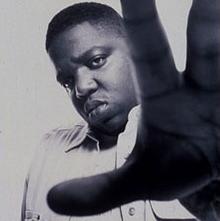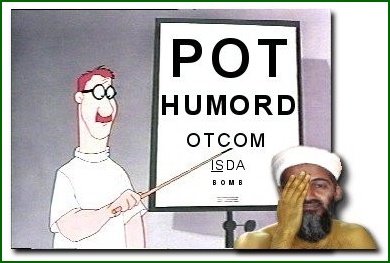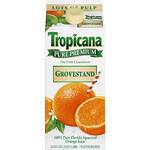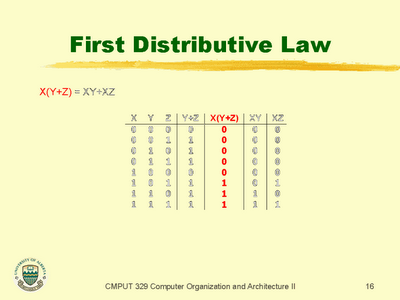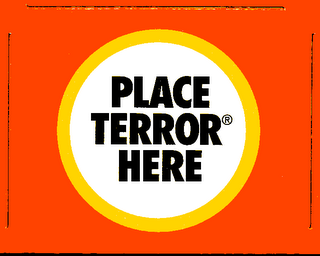Six months ago, Richard Cohen over at the WaPo penned an (ostensibly serious) column called,
“What Is the Value of Algebra?” Though I'm tardy, I would like to respond.
N.B. All of the column's text reappears here, though I will interrupt frequently and at times obnoxiously.
I am haunted by Gabriela Ocampo.
Last year, she dropped out of the 12th grade at Birmingham High School in Los Angeles after failing algebra six times in six semesters, trying it a seventh time and finally just despairing over ever getting it. So, according to the Los Angeles Times, she "gathered her textbooks, dropped them at the campus book room and, without telling a soul, vanished from Birmingham High School."
Gabriela, this is Richard: There's life after algebra.
In truth, I don't know what to tell Gabriela. The L.A. school district now requires all students to pass a year of algebra and a year of geometry in order to graduate. This is something new for Los Angeles (although 17 states require it) and it is the sort of vaunted education reform that is supposed to close the science and math gap and make the U.S. more competitive. All it seems to do, though, is ruin the lives of countless kids. In L.A., more kids drop out of school on account of algebra than any other subject. I can hardly blame them.All that such reforms
seem to do is ruin the lives of (a finite and discernible number of) kids if one focuses only on those who fail. But if math/science scores improve overall, to another anecdote collector, the reforms might seem to enhance education. It would be really neat if we had tools for analyzing situations in which there are both winners and losers, and if those tools were other than (a) use of emotional anecdote; (b) rhetoric.
Whether or not these specific reforms are wise, your method of analyzing them is most certainly unwise.
[Foreshadowing] Whether these specific reforms are too hard on students is a quite distinct issue from whether algebra should be part of such reforms.
I confess to be one of those people who hate math. I can do my basic arithmetic all right (although not percentages) but I flunked algebra (once), barely passed it the second time -- the only proof I've ever seen of divine intervention -- somehow passed geometry and resolved, with a grateful exhale of breath, that I would never go near math again. I let others go on to intermediate algebra and trigonometry while I busied myself learning how to type. In due course, this came to be the way I made my living. Typing: Best class I ever took.I'll give you the benefit of the doubt and assume you're not advocating replacing algebra with typing, and instead are exorcising adolescent demons in a column published by the Washington Post.
Here's the thing, Gabriela: You will never need to know algebra. I have never once used it and never once even rued that I could not use it.Have you, Mr. Cohen, considered that you are quite lucky to be able to support yourself by your writing talents alone? That the experiences of a columnist at one of the nation's top papers might not generalize to your subject?
You will never need to know -- never mind want to know -- how many boys it will take to mow a lawn if one of them quits halfway and two more show up later -- or something like that.Word. Those textbook writers are such clowns for trying to relate possibly intimidating and abstract material to the mundane lives of students. Those writers are of course really saying, “Algebra is justified by its applications to these word problems. Don't remember the techniques and try to apply them elsewhere, just remember how to solve these silly examples. You are learning
nothing more than how to find lawn-mowing times.”
Most of math can now be done by a computer or a calculator. On the other hand, no computer can write a column or even a thank-you note -- or reason even a little bit. If, say, the school asked you for another year of English or, God forbid, history, so that you actually had to know something about your world, I would be on its side. But algebra? Please.I don't know how you determined what comprises “most of math” if you struggle with percentages, or why a human's ability to program a machine to do a task says anything about the level of reasoning involved in the task, to say nothing of the
reasoning required to create a machine which can complete certain tasks much more quickly than any human can. [If computers kinda suck at voice-recognition, is it high reasoning to type what others?]
Sometimes (gasp!) humans and their computers work in tandem.
Sometimes computers offer evidence for what humans have thought for a long time. Anyway computers haven't made humans obsolete.
Probably you had in mind more down-to-earth instances of math, in which case your use of “now” is a little bit confusing. But fine -- computers have made great strides. So what? Humans (still) need to convert the real world into a language a computer understands. Then humans (still) need to convert the computer's results into a statement about the real world. BONUS: struggling with problems a calculator could do might build one's quantitative sense. DOUBLE BONUS: at best you're arguing for computer education to replace math; probably they should both be taught.
As a show of goodwill, I concede your point about thank-you notes.
Gabriela, sooner or later someone's going to tell you that algebra teaches reasoning. This is a lie propagated by, among others, algebra teachers. Writing is the highest form of reasoning. This is a fact. Algebra is not. The proof of this, Gabriela, is all the people in my high school who were whizzes at math but did not know a thing about history and could not write a readable English sentence. I can cite Shelly, whose last name will not be mentioned, who aced algebra but when called to the board in geography class, located the Sahara Desert right where the Gobi usually is. She was off by a whole continent.Let's start with a technical point, Mr. Writer, Sir. Your pair of sentences:“This is a fact. Algebra is not.” could be construed as meaning that algebra is not a fact. This would be both an awkward and incorrect thing to say.
Your use of the word “fact” is at best creative and at worst wrong. Likewise with “proof” and “lie.”
Why do you single out algebra? If writing, not algebra, is the highest form of reasoning, surely it's the case that writing, not geography, is the highest form of reasoning. Oh, right, Richard Cohen has no geography demons, and Richard Cohen's demons should be the basis for education policy.
Also, I asked around, and none of my friends have ever suffered in the workplace or in higher education for not being able to identify a particulat desert on a map.
I loooooove that your “proof” of the “fact” that writing, not algebra, is the highest form of reasoning, consists in the fact* that you went to school with kids who were good at math but bad at writing and geography. You're again being (almost laughably) unfair, Richard. Algebra isn't the best because (you claim) mastery doesn't spill over to writing ability. OK, fine. If writing is the highest form of reasoning, by the test you apply to algebra, shouldn't it be the case that all of the best writing students are naturally whizzes at math and geography?
Not only is your reasoning unfair, it's circular. You assume either writing or algebra is the highest form of reasoning; whatever. Your
reason for asserting the highest form of reasoning is writing, not algebra, is that algebra doesn't teach the highest form of reasoning, which is writing. This argument makes approximately no sense whatsoever.
Fact: baseball is the best sport.
Proof: I went to high school with some people who were really good at football but could not hit a curveball to save their lives. What's more, these kids couldn't make omelets for shit. QED.
*I'm trusting you here!
Look, Gabriela, I am not anti-algebra.You have a funny way of showing it!
It has its uses, I suppose, and I think it should be available for people who want to take it. Maybe students should even be compelled to take it, but it should not be a requirement for graduation. There are those of you, and Gabriela you are one, who know what it is like to stare at an algebra problem until you have eyeballed a hole in the page and not understand a thing you're seeing . There are those of us who know the sweat, the panic, the trembling, cold fear that comes from the teacher casting an eye in your direction and calling you to the blackboard. It is like being summoned to your own execution.Algebra should be available, maybe compulsory. You suppose it has its uses. REVOLUTIONARY CONCESSIONS. You know, I think schooling through grade 12 should be available, maybe compulsory. As yet another show of goodwill, I'll one-up you: I think writing “readable English sentences” should be compulsory, maybe mandatory for graduation. But really this is on you (!); if this column has any substance underneath your rhetoric and appeal to emotion, you
really (like,
REALLY) should have answered the following question:
Should there be language/writing requirements for graduation?
On this subject you've said only:
If, say, the school asked you for another year of English or, God forbid, history, so that you actually had to know something about your world, I would be on its side.
So we may “ruin lives” over your favorite subjects, but not mine? Or, you have a general problem with policies which you view as too harsh on kids and are using your column (which the Washington Post Company has been kind enough to publish) to expose your innumeracy to the world?
Perhaps you are right in suggesting that calling students to the blackboard is bad pedagogy -- if publicly failing at math sours one's view of the subject, publicly being “off by a whole continent” is likely to ruin geography. I'm forgetting my point here...wait for it...wait...OH RIGHT, the point made by your story has nothing to do with algebra. Whoops!
Almost 20 years ago, I wrote a similar column about algebra. Math teachers struck back with a vengeance. They made so many claims for algebra's intrinsic worth that I felt, as I once had in class, like a dummy. Once again, I just didn't get it. Still, in the two decades since, I have lived a pretty full life and never, ever used -- or wanted to use -- algebra. I was lucky, though. I had graduated from high school and gone on to college. It's different for you, Gabriela. Algebra ruined many a day for me. Now it could ruin your life.A (final) incredibly irritating feature of your column is that you treat writing and algebra as utterly distinct subjects. In writing courses students (ideally) learn to communicate their ideas to others. In math courses students (ideally and among other things) learn to communicate their mathematical ideas to others. Every equation is a sentence. Every manipulation of an equation is the assertion that one sentence implies another. Every word problem involves translating words into symbols, manipulating those symbols, then translating the answer back into words.
Sounds a lot like reasoning, doesn't it?
Your complete reliance on anecdote without a shred of analysis or fact is nauseating.
Grade: F

 I can beat this offer. Suppose a typical horoscope is 250 characters. For $2.00 per month, every day I will text you a completely random string of 250 characters, including but not limited to letters, numbers, punctuation marks, and spaces. My offer is better for two reasons.
I can beat this offer. Suppose a typical horoscope is 250 characters. For $2.00 per month, every day I will text you a completely random string of 250 characters, including but not limited to letters, numbers, punctuation marks, and spaces. My offer is better for two reasons.